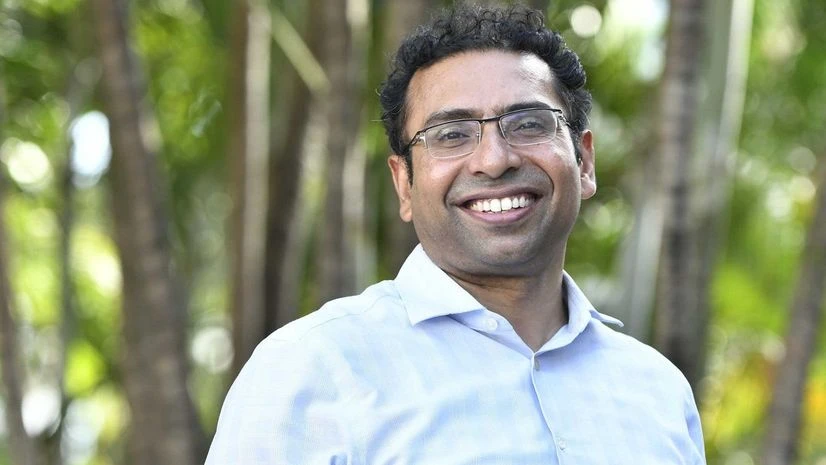Mostly, it has been a one-way street for the markets that have scaled up to record highs, propelled by foreign institutional flows. Saurabh Mukherjea, founder and chief investment officer of Marcellus Investment Managers, tells Puneet Wadhwa in an email interview that regardless of what happens to the global economy, this post-pandemic stock market rally will continue, provided the market believes that corporate profit growth sustains. Edited excerpts:
Do you think the fears of a global recession are overdone?
Both in India and in the West, stock markets and economic growth have very little correlation. The main reason for that is that what drives stock markets (namely, future profit growth) is very different from what drives the economy. Therefore, regardless of what happens to the global economy, this post-pandemic stock market rally will continue, provided the market believes that corporate profit growth will sustain.
I have not met anyone in my 20-year career who has made money forecasting the market. The simple reason for that is that it is not possible to forecast the market in its entirety. What an investor can do is identify clean, well-managed companies and figure out how fast their businesses will grow henceforth. That can then form the basis of a prudent investment decision. Forecasting and astrology are more speculative activities and therefore inherently dangerous.
Is there a mismatch between the markets and how the Indian economy is shaping up?
The 35-odd companies in which Marcellus has invested around Rs12,000 crore are generating healthy (around 20 per cent per annum) earnings growth and healthy free cash flow (FCF) growth. A majority of these firms are investing large sums of money in setting up new plants and expanding their businesses.
Neither they nor I are speculating on India’s future economic growth. Based on how these companies have grown in lockstep with the Indian economy over the past two decades, these firms expect to see their profits and cash flows grow for many years to come. We share that optimism and hence remain long-term shareholders in these firms.
More From This Section
Are investable themes in short supply now, given the sharp run-up in the markets?
It is always difficult to find clean, well-managed companies that have dominant franchises. One of the reasons for this is that such firms deliberately maintain a low profile. You will rarely see investee firms of ours like HDFC Bank or Nestlé or Pidilite make too much noise despite the stupendous amount of wealth created by these firms over the past decade.
Since these firms don’t like to tell the world exactly how hard they are working, we end up having to do months of research to understand what they are up to. Please note that Marcellus’ clients, including myself and my parents, have a beneficial interest in these stocks.
What have been your biggest hits and misses in the past six months?
We trebled our investment in Divi’s Laboratories last winter (after the stock had halved). That has worked out so far this year. On the other hand, we have not been able to find too many plays on the nascent capital expenditure (capex) cycle in India and have thus missed out on capitalising on the capex pick-up. Please note that Marcellus’ clients, including myself and my parents, have a beneficial interest in Divi’s.
What has suddenly changed that's drawing foreign institutional investors (FIIs) back to India?
Once the US banks started going bankrupt in the Spring of 2023, the US Federal Reserve started buying government bonds to inject liquidity into the US banking system (and thus stabilise the system). As soon as the foreign exchange markets saw this fresh supply of the US dollar, the Indian rupee/dollar exchange rate — which had fallen in the preceding 12 months from ~72 to ~82 — stabilised, and FIIs returned to India. If you look at historical data, FIIs are usually steadfast investors in India unless, of course, the rupee depreciates sharply, which usually happens once every five years.
Is the outbound portfolio management services (PMS) fund, Marcellus’ Global Compounders Portfolio, which invests in overseas stocks, similar in investment strategy to your India PMS schemes? And what kind of stocks does it focus on?
Much like in our domestic PMS, Global Compounders looks for well-managed dominant global franchises. The only difference is one of scale. For example, Microsoft, which is part of the Global Compounders, generates revenues of over $200 billion per annum, thanks to pretty much the whole world using its Office package and using its Azure Cloud platform. On this colossal revenue base, Microsoft’s operating margin is around 50 per cent! That, in turn, gives Microsoft huge FCF, which it can reinvest in, say, building dominant artificial intelligence platforms or gaming platforms. Therefore, Global Compounders are — as the name suggests — companies whose offerings underpin the basis of our daily lives, either at home or in the office.

)
